Research, Development, and Innovation Services
Providing research, development, and innovation services for the University Research and Innovation Center (EKIK) is one of the most important tasks, which is implemented in collaboration with the Innovation Office operating within the center. According to Dr. Tamás Haidegger, the Director-General of EKIK, “innovation is the most important breakthrough point for Hungarian higher education.”
EKIK provides research, development, and innovation services to companies in the following areas:
Keywords: robotics, industrial robotics, intelligent robotics, collaborative robotics, smart mechatronics, robotic safety technology, ISO standardization, autonomous vehicle safety.
- Continuous collaboration with the private sector, knowledge of industrial research and development processes
- Scientific approach, knowledge, and application of new technologies
- Partnership in prestigious projects, application of industrial technologies in scientific projects
The industrial group of the Antal Bejczy Center for Intelligent Robotics actively participates in modern industrial robotics research and development with highly skilled engineer-informaticians, mechanical engineers, mechatronics engineers, and electrical engineers (many members hold scientific degrees). The team works with a unique robotic infrastructure in Hungary, utilizing modern industrial robots and collaborative robots. The primary task of the research group is to conduct research and development of industrial orders within a university environment, applying a scientific approach to the private sector.
Infrastructure:
- KUKA LBR IIWA robotic arm
- Fanuc M-430iA/2F robotic arm
- KUKA youBot educational mobile robot
- UR-16e robotic arm
- Self-developed serial and parallel kinematic robots
- Other mobile and humanoid robots
Goals:
- Development of modern industrial manufacturing technologies, algorithmic support
- Mechatronic support of industrial robotic technologies (e.g., designing grippers)
- Utilization of advanced mathematical knowledge in modern industrial robotics
- Fulfilment and expansion of industrial orders with new scientific results, education
Keywords: robot-assisted surgery, telesurgery, medical robotics, partial autonomy, robotic safety standards, assessment of surgical skills, surgical ontologies, Surgical Data Science.
The medical robotics group at the Antal Bejczy Center for Intelligent Robotics supports the development of medical robotics algorithms using modern robotic equipment and the latest scientific results. Uniquely in Hungary, the BARK robot laboratory has access to the da Vinci surgical robot system, which is currently the market-leading telesurgical system. The group’s main research and development areas are surgical automation, decision support, assessment of surgical skills, and automation of ultrasound imaging.
Infrastructure:
- Da Vinci surgical robot
- Da Vinci ResearchKit (DVRK)
- KUKA LBR IIWA robotic arm
- BARK Robot Laboratory
Research and Development Areas:
- Scientific approach to surgical automation
- Skill assessment in the field of surgical automation
- Surgical decision support
- Surgical education, research, and publication activities
Keywords: medical image processing, medical imaging, medical data analysis, bioinformatics, medical informatics, health monitoring, medical signal processing, biotechnology, tissue engineering.
The BioTech Research Center (BioTech) conducts research in the interdisciplinary field of healthcare engineering within EKIK, aiming to develop new technologies, software, and hardware that effectively support the advancement of the medical field in both research and clinical practice. The research center continuously provides infrastructure for university researchers and students to explore the broad area of cyber-medical systems and to realize their innovative ideas.
Achievements:
- Development of digital pathology software
- Differentiation of patient and healthy tissues using medical imaging
- Development of a telemedicine framework
- Research and development of immunodiagnostic instruments
- Research and development of medical ventilator equipment (MassVentil)
Infrastructure:
- Hardware development block
- Experimental/Examination block
- Software development and testing block
- Rapid prototyping block
Research and Development Areas:
- Healthcare engineering research and development
- Supporting and managing innovation in a university environment
- Economic utilization of scientific results
- Publication activities and education
Contact Information:
- Institute Name: BioTech Research Center (BioTech)
- Contact Person: Prof. Dr. Miklós Kozlovszky
Keywords: physiological regulations, diabetes, hemodialysis, biostatistics, cancer research
The Physiological Regulations Research Center (PhysCon) conducts research in the interdisciplinary field of healthcare engineering within EKIK. Its aim is to develop new procedures that effectively support the advancement of the medical field in both research and clinical practice by incorporating the latest knowledge from engineering and information sciences.
Achievements:
- Modeling of physiological regulations in tumors
- Development of regulatory algorithms for artificial pancreas
- Biostatistical analysis of diseases
- Development of regulatory algorithms for hemodialysis machines
Infrastructure:
- General-purpose research laboratory
Research and Development Areas:
- Modeling of physiological regulations
- Control theory
- Statistical processing of clinical results
- Education
Contact Information:
- Institute Name: Physiological Regulations Research Center (PhysCon)
- Contact Person: Dr. Dániel Drexler
Keywords: health economics, health technology assessment, health gain, social and economic benefits, innovation, digital health, medical devices
HECON is the research center responsible for developing the health economics research and educational strategy at Obuda University. HECON aims to support the technological assessment of domestic and international pharmaceutical, medical device, and digital health innovations as an applied research center. Additionally, it seeks to advance the methodology of technological assessment of medical devices through basic research. When introducing a new drug, medical device, or therapeutic procedure (referred to as health technology), it is crucial to determine its effectiveness, safety, and cost relative to existing treatments. Health technology assessment is an applied science that addresses these questions with scientific rigor for healthcare decision-makers.
Research Methods:
- Analysis of clinical trials (effectiveness, safety)
- Assessment of health gain (improvement in quality of life, life years gained)
- Cost assessment and comparative analysis
- Synthesis and meta-analysis of medical evidence
- Cost-effectiveness and budget impact modeling
Infrastructure:
- Software for analysis and modeling: Stata, SPSS
- Access to academic literature databases
- Database containing over twenty thousand patient records from previous research
Achievements:
- Published (or accepted for publication) 14 scientific articles in prestigious English-language journals and 5 in Hungarian-language journals, with co-authors. Of these, 6 are D1, 3 are Q1, 3 are Q2, 1 is Q3, 3 are Q4, and 3 are non-classified publications, collectively representing an impact factor of 63.008.
- Collaborated with 12 international and national scientific advisory professors. Participated in coordination and research tasks in two H2020 and two National Research, Development and Innovation Fund excellence programs. In 2021, worked with thirteen PhD students, two of whom defended their dissertations.
- Continued research on medical devices and the digitizing healthcare industry, adhering to the new EU Medical Device Regulation (MDR) requirements. Successfully applied for new research projects, published internationally, organized conferences, and expanded educational materials with new undergraduate and PhD courses.
Contact Information:
- Contact Person: Dr. Zsombor Zrubka
- Email: zrubka.zsombor@uni-obuda.hu
The forms of collaboration are always developed jointly with the partner, with a customized price quote.
Most common services:
- Device development, production of a technical model or prototype using either the partner’s or the center’s equipment
- Market research, opportunity analysis, and extensive literature review in the above areas
- Applied research
- Joint implementation of Business Projects for educational purposes
- Professional networking and organization of joint professional events
The forms of collaboration are always developed jointly with the partner, with a customized price quote.
Most common services:
- Device development, production of a technical model or prototype using either the partner’s or the center’s equipment
- Market research, opportunity analysis, and extensive literature review in the above areas
- Applied research
- Joint implementation of Business Projects for educational purposes
- Professional networking and organization of joint professional events



